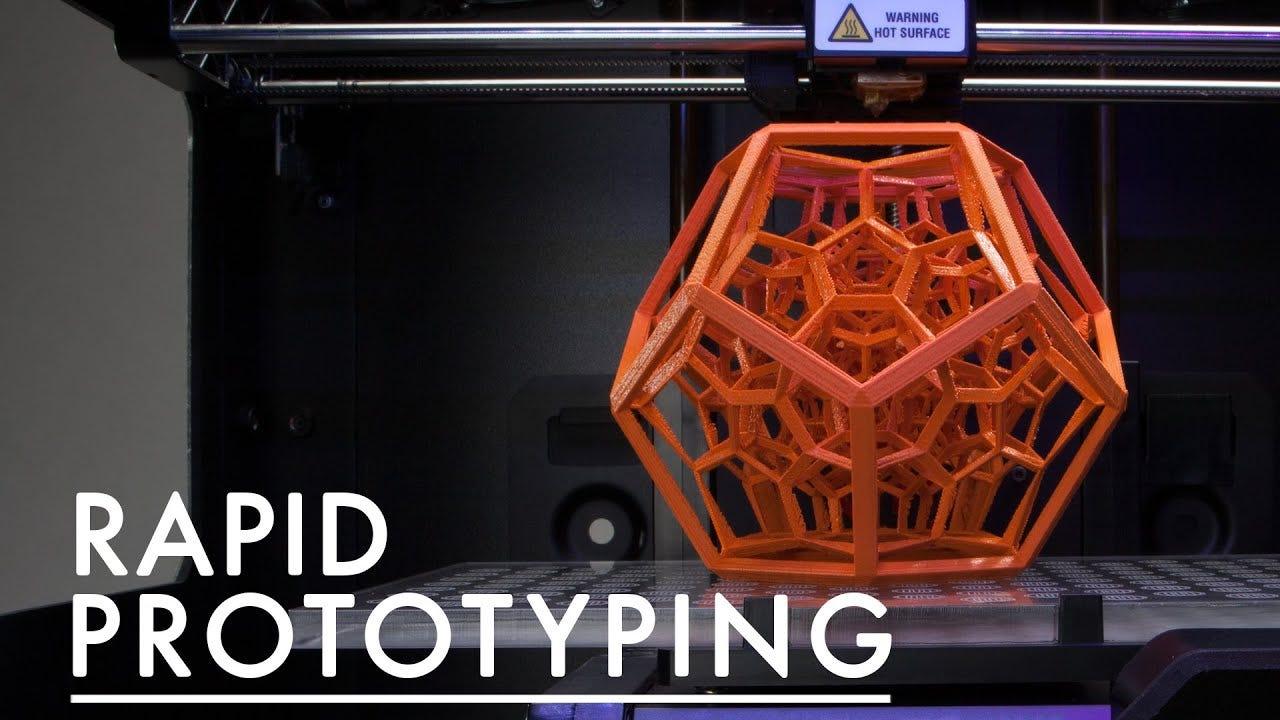The barrier between a digital idea and a physical object has never been thinner. Across industries, the ability to quickly and iteratively create tangible parts is compressing development timelines from months to weeks and empowering engineers and designers to innovate with unprecedented speed. This revolution is fueled by rapid prototyping services, which have evolved from niche model-making into a critical, on-demand infrastructure for modern manufacturing and design.
According to Straits Research, the global rapid prototyping service sector was valued at USD 2.47 billion in 2024 and is expected to grow from USD 2.87 billion in 2025 to reach USD 9.68 billion by 2033, growing at a CAGR of 16.4% during the forecast period (2025-2033). This explosive growth is a direct indicator of its entrenched role in the product development lifecycle, becoming as essential as software design itself.
Key Players and Strategic Expansions
The landscape is a mix of massive manufacturing platforms, specialized bureaus, and technology-specific leaders.
-
Proto Labs, Inc. (USA): A pioneer and one of the largest publicly-traded players, Proto Labs operates as a digital manufacturing hub. Their strategy is breadth and speed, offering instant online quotes and a vast array of technologies from CNC machining to injection molding and 3D printing. Recent updates focus on expanding their material portfolio for additive manufacturing, including more high-temperature and biocompatible resins, and enhancing their automated quoting software to handle even more complex geometries.
-
Xometry, Inc. (USA): Xometry has taken a platform-based approach, creating a massive marketplace that connects customers with a global network of thousands of manufacturing partners. Their recent growth is tied to the acquisition of Thomas, a leading product sourcing platform, significantly expanding their reach. Key updates include the rollout of new AI-powered supplier matching algorithms and the expansion of their "Xometry Instant" quoting engine in Europe, directly challenging local players.
-
Materialise NV (Belgium): A veteran from the early days of 3D printing, Materialise distinguishes itself through deep software integration and a focus on high-value industrial and medical applications. Rather than just being a service bureau, they provide the software backbone (like its Magics platform) that many others use. Their key analysis shows a strategic pivot towards sustainable manufacturing processes and end-use part production, particularly in the aerospace and healthcare sectors.
-
Sculpteo (France) & Voodoo Manufacturing (USA): These players represent specialized and disruptive models. Sculpteo, acquired by BASF, leverages its parent company's advanced material science to offer unique plastic and polymer options. Voodoo Manufacturing, while scaling back some operations, pioneered high-volume 3D printing runs using farms of hundreds of desktop printers, a model still influential for low-cost, large-batch prototyping.
Emerging Trends Reshaping the Industry
The service is no longer just about speed; it's about intelligence, sustainability, and finality.
-
From Prototyping to Production: The most significant trend is the erosion of the line between prototyping and manufacturing. Technologies like HP's Multi Jet Fusion and Carbon's Digital Light Synthesis are producing parts with end-use quality and durability. Services are increasingly marketing themselves for low-volume bridge production and custom manufacturing, not just one-off models.
-
Multi-Material and Full-Color Printing: Advancements in binder jetting and material jetting technologies allow services to offer parts in multiple materials or millions of colors in a single print. This is a game-changer for prototypes that require different shore hardnesses (like a rigid housing with a soft-touch button) or hyper-realistic models for marketing and sales.
-
Sustainability as a Service: Leading providers are now highlighting sustainable practices. This includes using recycled nylon powders (PA11/12), offering carbon-footprint estimates for orders, and utilizing bio-derived resins. This appeals to corporations with strong Environmental, Social, and Governance (ESG) mandates.
Recent Global News and Updates
The sector is dynamic with constant movement. Germany's EOS, a leader in industrial 3D printing systems, recently launched a new polymer platform, which its service bureau partners are quickly adopting to offer new material properties. In Asia, Hi-P International (Singapore) a traditional contract manufacturer, has made significant investments in additive manufacturing capabilities, signaling the technology's move into the mainstream manufacturing fold. A recent news highlight is Jabil Inc. (USA) announcing a new AI-powered software tool that optimizes part design for additive manufacturing, which will be integrated into its service offerings to improve strength and reduce material usage.
In summary, rapid prototyping has matured into a sophisticated, indispensable service driving global innovation. It is characterized by a shift towards digital platforms, the adoption of production-grade technologies, and a focus on sustainability, enabling companies to iterate faster and bring better products to the world.



